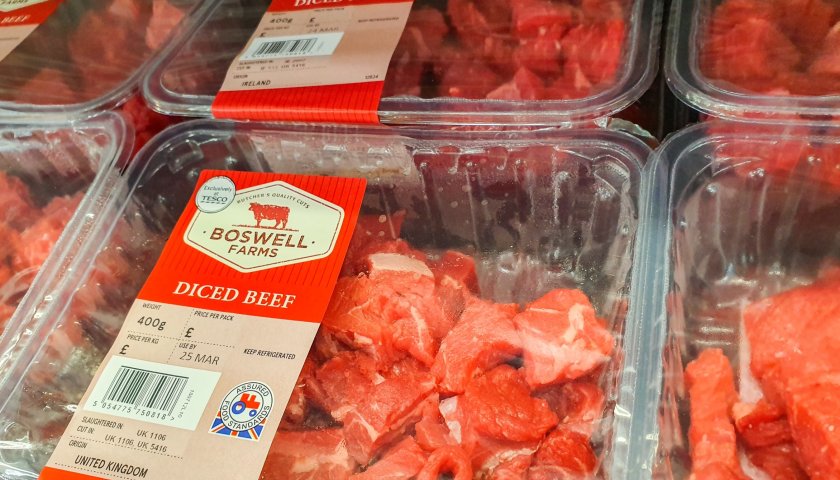
Phase two of 'shelfwatch', the largest ever survey of food being offered on Scottish supermarket shelves, is now underway.
NFU Scotland started the initiative in January, with an aim to shine a light on how and where Scottish produce is being made available to buy.
For phase one, an independent research firm visited 71 stores across mainland Scotland, looking at own-label beef, lamb, pork, chicken, eggs, vegetables and dairy.
Tesco, Asda, Morrisons, Sainsbury’s, Co-op, Marks and Spencer, Lidl and Aldi stores were all inspected. In all, more than 15,000 products were reviewed.
It revealed a completely mixed bag of what is going on in shops across the country and available to Scotland’s consumers.
Some retailers had little or no Scottish produce amongst own-label goods on their shelves.
Results from phase two will be reported next month ahead of the Royal Highland Show, Scotland’s biggest showcase for food and farming.
In total, four shelfwatch studies will be carried out this year. All retailers involved in the latest survey were notified 24 hours in advance of the study commencing.
Since phase one results were reported, Asda attended NFU Scotland’s annual conference, and a further meeting is taking place.
NFU Scotland has also met with Aldi, Tesco and Sainsbury’s since Phase One and meetings with M&S and Morrisons are planned.
Requests for meetings with other retailers – Lidl and Co-op - have yet to receive a reply, according to the union.
Phase two will continue to look at the availability and origin of all fresh and lightly processed goods on Scottish supermarket shelves with a one-off look at branded Scottish products in the dairy category.
It will also examine the labelling on those products to better understand the transparency for consumers in making choices.
NFU Scotland chief executive, John Davidson said consumers wanted to support local farmers, and retailers had a 'huge responsibility' in delivering thar.
He said: “The results of phase one, and what we discover during phase two, provide us with a fantastic opportunity to give credit to those who are tremendous supporters of local food production within Scotland.
"We will also use these results to inform discussions with those retailers who have been identified as having zero or low levels of Scottish produce available, to better understand any sourcing challenges they have and look to resolve these.
“Our ambition is that, when we come to complete our final shelfwatch at the end of this year, there has been a marked improvement in the availability of Scottish produce in Scottish stores.”
